
"Arigato Gozaimasu! Thank You! ありがとうございます Japanese Slang, Learn
"Arigato gozaimasu" (ありがとうございます) is a Japanese phrase that translates to "Thank you very much" in English. It's a polite way to express gratitude. The Japanese word "arigato" on its own means "thank you," and the addition of "gozaimasu" increases the politeness level of the expression.

Onegai shimasu and Domo arigato gozaimashita YouTube
どうもありがとう。 Domo arigato. Thank you very much. Domo arigato (sometimes transcribed in "Doumo arigatou") is a way of saying "Thank you very much" in Japanese. The combination of Domo with Arigato has the effect of reinforcing the power of your thanks. Arigato gozaimasu, a formal thank you ありがとうございます。 Arigato gozaimasu. Thank you.
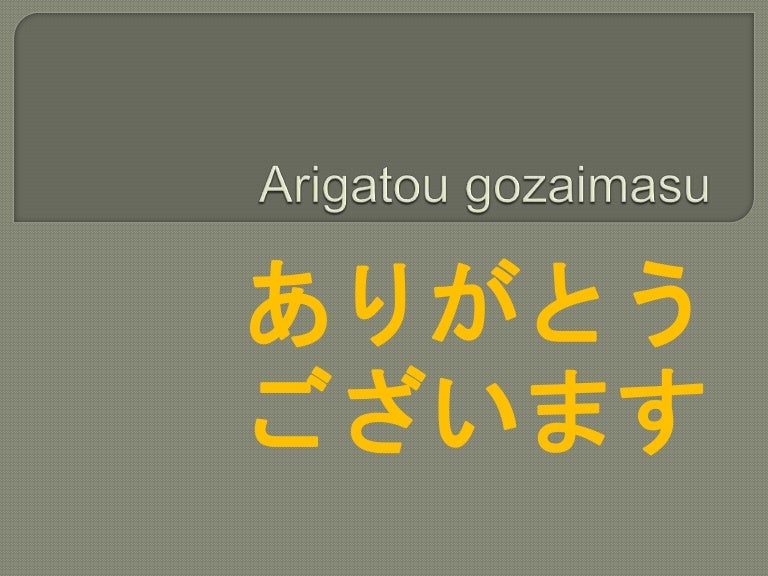
Arigatou gozaimasu
English translation: thank you very much 00:03 Apr 7, 2003 Japanese to English translations [Non-PRO] Japanese term or phrase:arigato gozaimasu A pen pal that I e-mail often closed his last letter with this term. Explanation:thank you very much (polite form) Selected response from: You do a most excellent job!! Arigato gozaimasu!!!
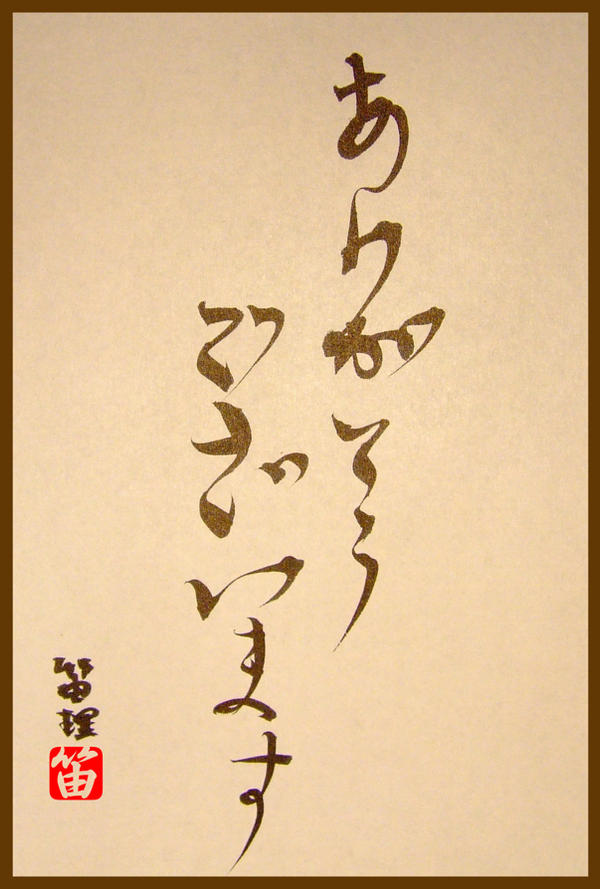
Arigatou Gozaimasu by Ferikun on DeviantArt
English translation of arigato gozaimasu - Translations, examples and discussions from LingQ. ×. じん つかう いい かた arigato gozaimasu is a formal way. may want to use arigato gozaimasu to people you meet. Learn Japanese language from content you love!
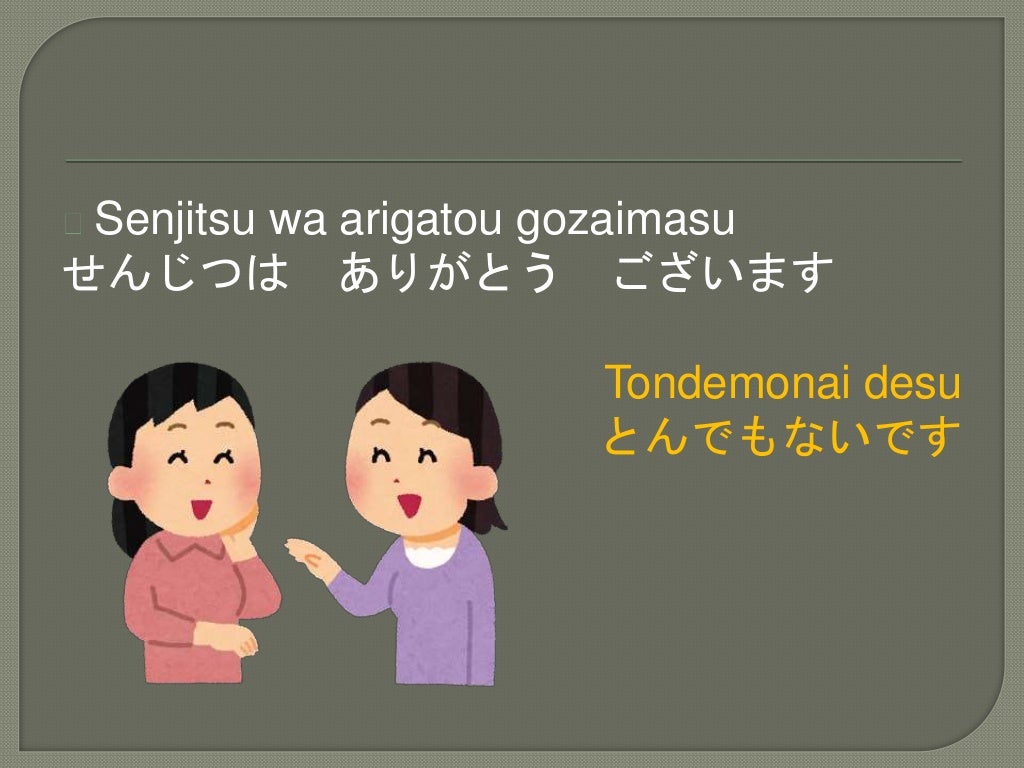
Arigatou gozaimasu
According to Japanese Pod 101, the phrase arigato is the polite form of thank you in Japanese. This word is often used in the formal phrase "domo arigato," the Japanese equivalent to "thank you so much," but can also be used on its own as a casual thanks. People also use the word domo on its own as an even more casual form of thanks.
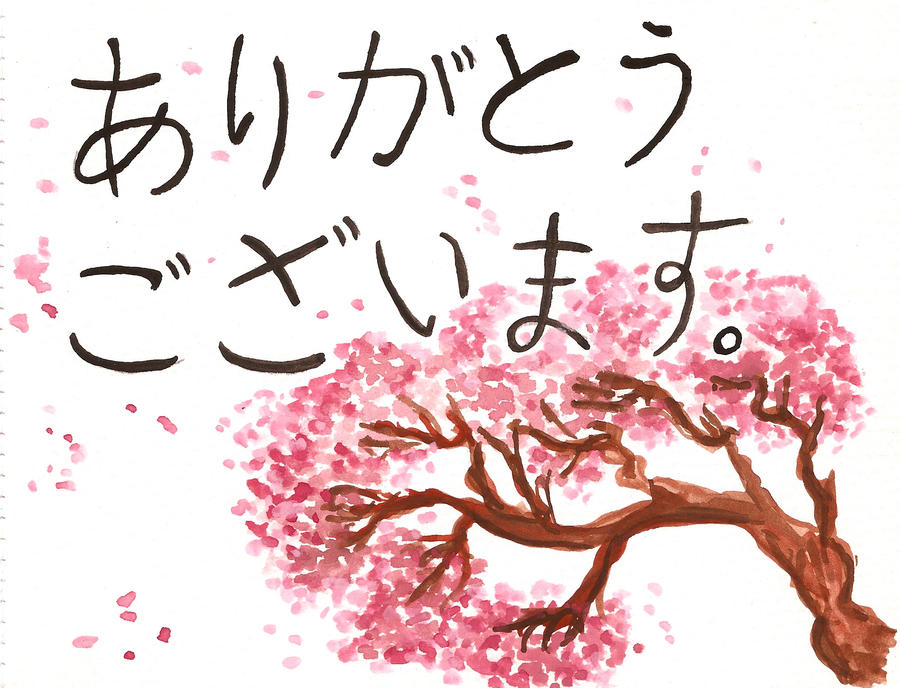
Arigato gozaimasu by emmaprew on DeviantArt
Meaning Thank you very much. Pronunciation Listen to the audio file for " Arigatou gozaimasu ." Japanese Characters ありがとうございます。 The proper way to say thank you in Japanese is arigatou gozaimasu. Here are the meaning and proper pronunciation of the phrase.

THANK YOU in Japanese arigatou gozaimasu vs arigatou gozaimashita
本当にありがとう. (hontou ni arigatou) mean "Thank you very much.". The phrase どうも (doumo) can be used on its own, or combined with ありがとう to show an extra level of thankfulness. Another phrase you can put before ありがとう is 本当に (hontou ni) which means truly or really. However, 本当に cannot be used on.
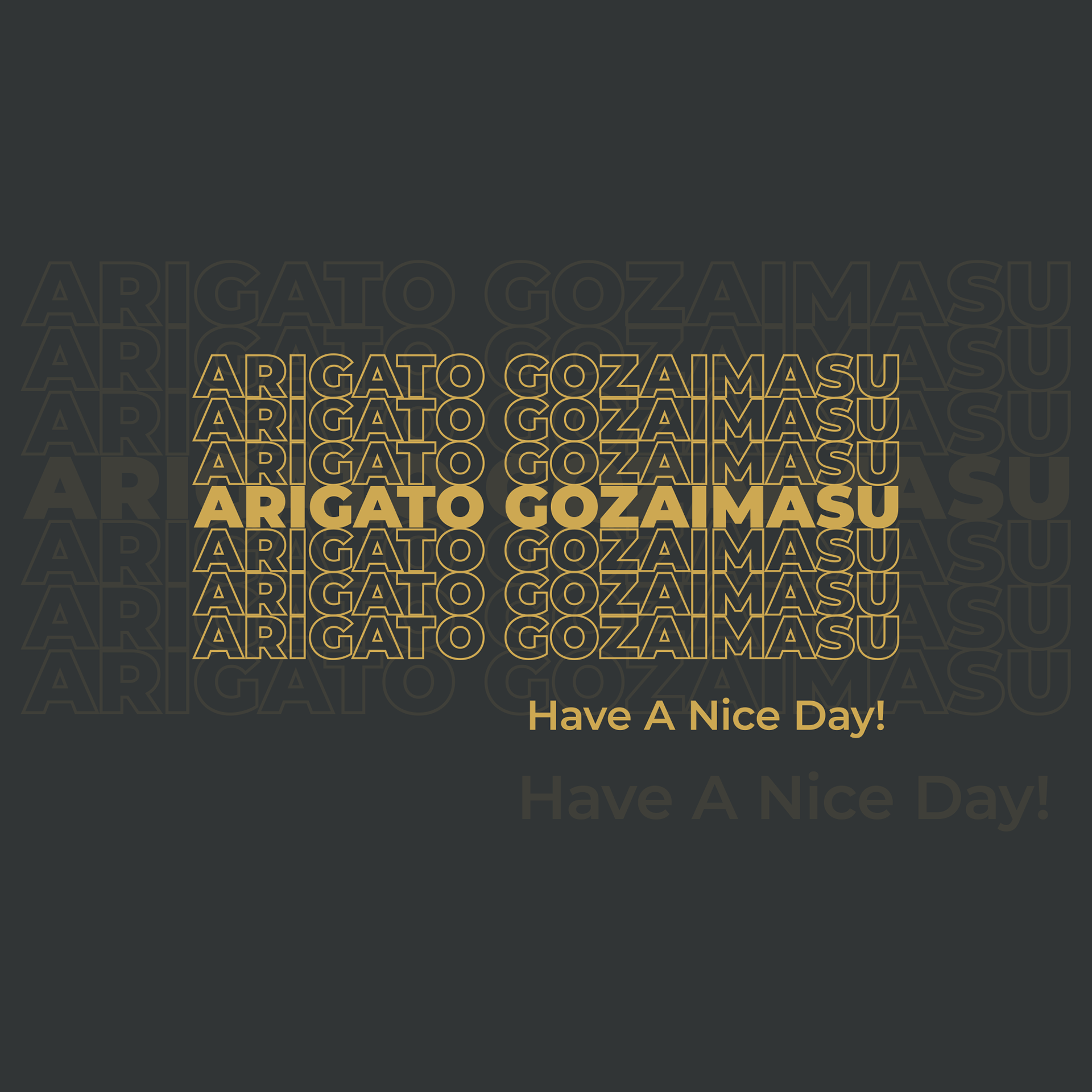
ARIGATO GOZAIMASU on Behance
1. ありがとう — Arigato — Thank you One of the most common ways to say thank you in Japanese is arigato. The arigato meaning is a simple English translation of "thank you" and can be used in many different situations. However, it's somewhat casual, so you might want to use something more formal in a professional setting.

Is it Domo arigato or Arigato gozaimasu? Find out in our quick guide to
Sumimasen, arigatou gozaimasu = A: Here is a souvenir for you. Please take it if you'd like. B: Sorry (for all the trouble you had for me). Thank you. How to say "You're welcome" When I was learning English, the thing I found weird was how English speakers always said "You're welcome", "It's alright", "My pleasure".
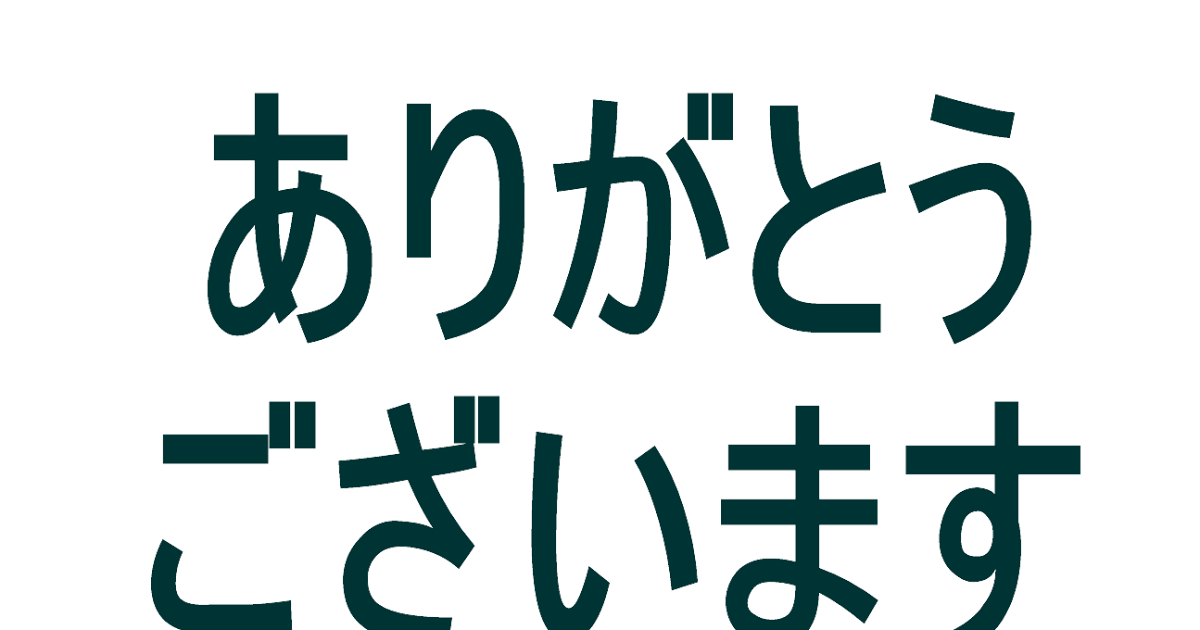
kotodamajapan arigatogozaimasu
Arigato! You've probably heard that phrase before, and know the domo arigato meaning from "Mr. Roboto"… But do you know all the ways to say "thank you" in Japanese? Japanese, like English, has different variations of "thank you", like "thanks" and "thank you so much."

Thank You In Japanese Arigato Gozaimashita
1. Arigatou - ありがとう Meaning: Thank you Pronunciation: ah-ree-gah-toh About: The short answer to "how do you say thank you in Japanese?" is arigatou. That's the word that most directly translates to a simple "thank you." So, if that's all you wanted, hey, problem solved.
How do you say "arigatou gozaimasu okaasan for the goodies you gave us
In English, they say Thanks, Thank you so much, I appreciate it, etc. Likewise, the ways to thank people in Japanese can be different depending on the situation or people you are thanking.. Meaning of Arigato gozaimasu. The phrase ありがとうございます Arigato gozaimasu literally means it is difficult to exist. あり Ari = exist.

Twitter Japanese language learning, Japanese words, Japanese phrases
1. Arigato gozaimasu! / Thank you! [arigato: gozaimas] This is a polite way of saying "thank you". While traveling in Japan, this is probably the most basic "thank you" phrase you'll be using. "Arigato" is for Friends "Arigato" is also a phrase that you will hear often.

How To Pronounce Arigatou Gozaimasu YouTube
Updated on September 12, 2017 If you are in Japan, you will probably hear the word arigatou (ありがとう) used on a regular basis. It is an informal way of saying "thank you." But it can also be used in conjunction with other words to say "thank you" in Japanese in more formal settings, such as an office or a shop or anywhere where manners matter.

"Arigato Gozaimasu! Thank You! ありがとうございます Japanese Slang, Learn
Yes, if you hadn't already guessed from the title, today we are going to be talking about using the word "arigatou", which means "thank you" in Japanese. BondLingo - YouTube Premium MemberShip Contents [ hide] 1 Using Arigato/Arigatou to express your gratitude in Japanese 2 Arigatou (Arigato) 3 Japanese Culture 4 The origin of "Arigato/Arigatou"

Today I’m going to tell you all you need to know about the meaning of
Arigatashi is first attested in the oldest literature of the 8th century. [5] It originally meant "difficult to exist, hard to be", [1] [2] [3] shifting to "rare, special", and then to "welcome, thankful, nice to have" by some time in the 15th century. [3] This sense is still in use: この 天 てん 気 き はありがたいね。 ― Kono tenki wa arigatai ne.